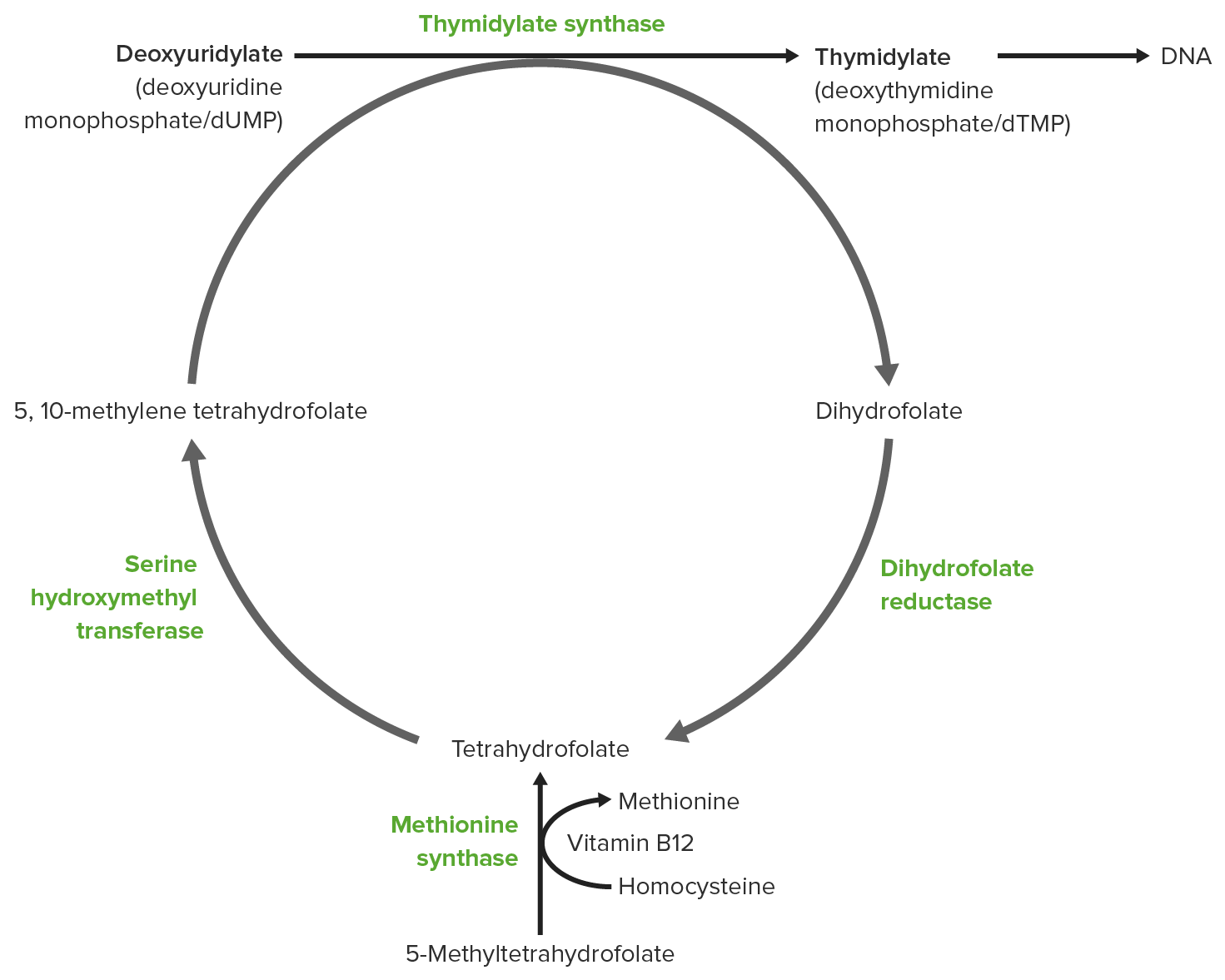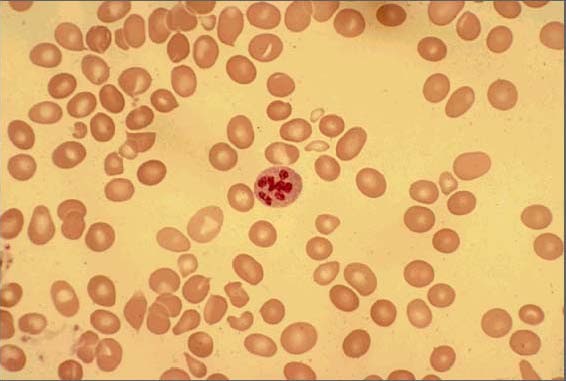Playlist
Show Playlist
Hide Playlist
Vitamin B12 Metabolism
-
Slides Macrocytic Deficiency.pdf
-
Reference List Pathology.pdf
-
Download Lecture Overview
00:00 B12 meat products. 00:04 You pick up R-factor. 00:06 Next, you’re done in your acid in your stomach. 00:09 You need that acid to properly convert your pepsinogen into pepsin. 00:12 We talked about that. 00:13 While you’re there, in your stomach from your parietal cell, you pick up intrinsic factor. 00:18 This intrinsic factor then binds to B12, along with this you also have R-factor. 00:22 All of this we just did. 00:22 You get into duodenum. 00:26 From the pancreas, you get your enzyme. 00:28 This enzyme from the pancreas removes the R-factor only. 00:32 So now, what are you left with? Intrinsic factor, B12. 00:37 This complex will then move to where? Terminal ileum for reabsorption. 00:43 B12, intrinsic factor. 00:46 IF is intrinsic factor. 00:48 Goes to terminal ileum and here comes transcobalamin type II. 00:52 I would know that. 00:54 I would know transcobalamin. 00:54 What’s another name for B12? Cobalamin. 00:58 Know that as well. 00:59 Make sure you know all the different names of your B vitamins. 01:00 That’s important, very. 01:04 For example, if you say B1, you’re going to think about thiamine. 01:08 B3, niacin, right? So on and so forth. 01:12 If you’re thinking B6, pyridoxine. 01:13 B12, cobalamin. 01:17 Be careful. 01:17 So you wonder transcobalamin II, it delivers the B12 from the terminal ileum to the liver. 01:24 So can you have a patient that has -- Know this. 01:29 can you have a patient that has transcobalamin II deficiency? Yeah. 01:33 Results in B12 deficient. 01:35 Okay now, we’re not quite done yet because you might have heard of Schilling test. 01:41 And it’s not that you’re actually going to perform it. 01:42 It’s out of date and clinical practice, you don’t want to unnecessarily expose your patient to radioactivity. 01:51 Is that clear? So I’m not going to walk you through the procedure for Schilling, any of that. 01:55 But there is one huge physiologic concept that you need to take out of Schilling and then utilize that with your treatment. 02:04 You’ll see what I’m referring to. 02:06 Before we move on though, let me ask you a question. 02:07 When you find a substance in your urine and you've eaten it, meaning that you ate it first -- Make sure we’re clear. 02:16 You’ve eaten something first and it ends up in your urine, tell me what happened to that substance first. 02:23 You reabsorbed that substance first from the intestine, then you got it into the blood and then you went to the kidney and you filtered it. 02:32 That’s the only way. 02:32 The kidney doesn’t filter the intestine, right? So meaning to say that if you find something in your urine, it had to have been reabsorbed first. 02:43 Is that clear? If it’s not reabsorbed, where does it end up? What did you do this morning maybe? You passed stool? Yeah, it will end up in your feces. 02:53 Is that clear? Why is that important? Because -- Let me ask you a simple question. 02:56 If your patient has megaloblastic anemia and starts showing signs of neurologic deficit and now at this point, there is absolutely no B12 in the urine. 03:08 You give intrinsic factor and you find B12 in the urine, what’s your diagnosis? Pernicious anemia. 03:16 So what we’ll do, ladies and gentlemen, we’ll go from head to toe. 03:21 Is it a vegan? Or is it an elderly with malnutrition? Is it a patient with pernicious anemia? Is it a patient with pancreatitis? Is it a patient with bacterial overgrowth? Anytime you then find cobalamin in your urine with giving that companion, whether it be R-factor, intrinsic factor or whatever enzymes, then you know that that is your diagnosis. 03:43 So you will see what I’m referring to but I’m just setting things up here for you.
About the Lecture
The lecture Vitamin B12 Metabolism by Carlo Raj, MD is from the course Macrocytic Anemia – Red Blood Cell Pathology (RBC).
Included Quiz Questions
Which of the following enzymes/hormones degrades food proteins and releases vitamin B12?
- Pepsin
- Pepsinogen
- Trypsin
- Cholecystokinin
- Somatostatin
Which of the following enzymes/hormones proteolytically degrades the R factor and releases vitamin B12 in the small intestine?
- Pancreatic enzymes
- Somatostatin
- Pepsin
- Pepsinogen
- Bilirubin
Where in the gastrointestinal tract is cobalamin absorbed?
- Terminal ileum
- Duodenum
- Antrum
- Ileum
- Jejunum
Customer reviews
1,0 of 5 stars
| 5 Stars |
|
0 |
| 4 Stars |
|
0 |
| 3 Stars |
|
0 |
| 2 Stars |
|
0 |
| 1 Star |
|
1 |
no explanation, his attitude was "we're just reviewing this, you should know it already"





